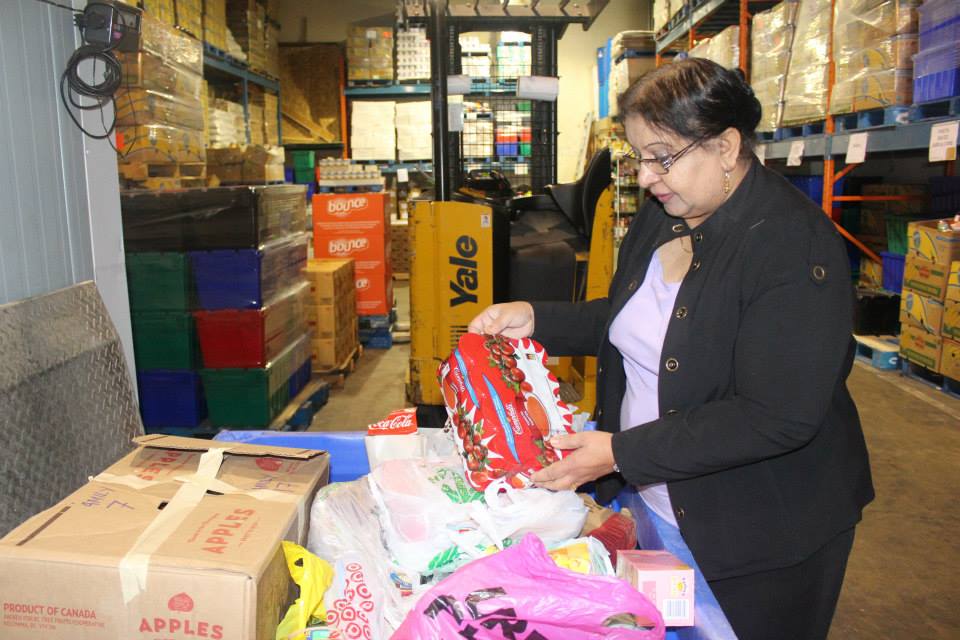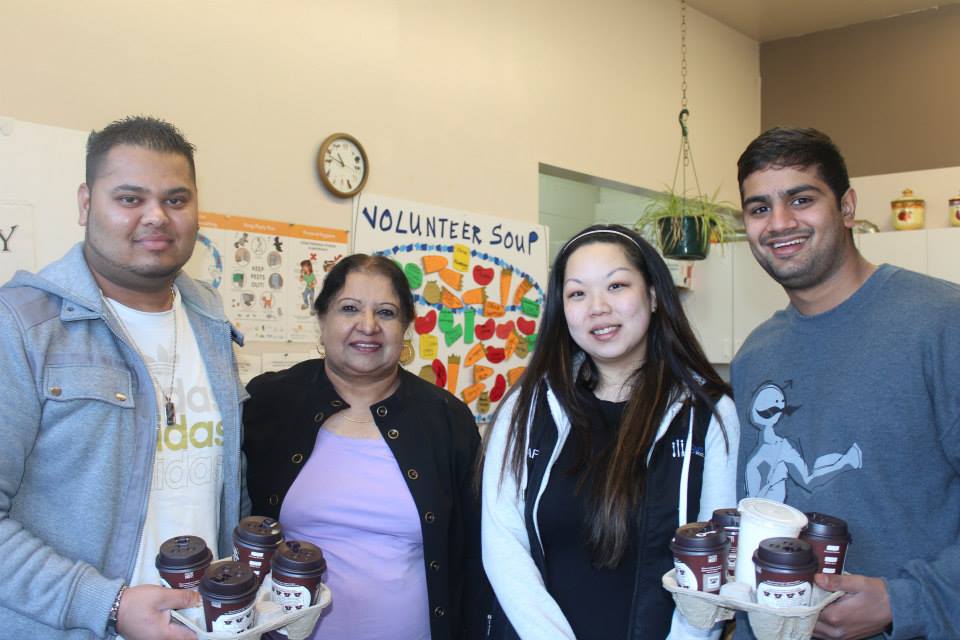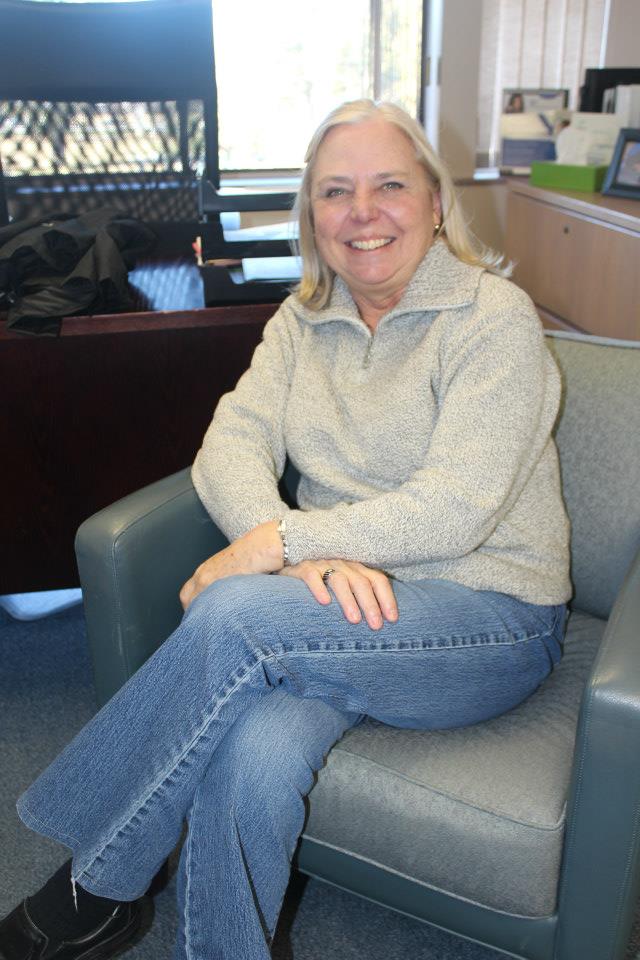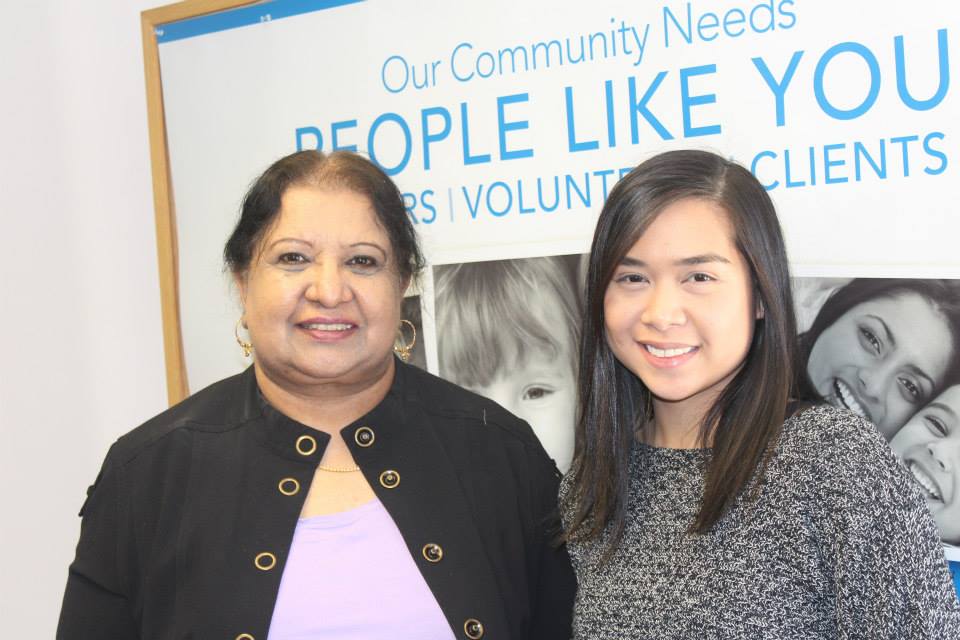Community News
Surrey Food Bank: Community helping the community
Kuldip Ardawa, Community Partnership Coordinator at Surrey Food Bank. PCI file photo.
When people hear the words ‘food bank,’ they often think of something like a soup kitchen—a facility that feeds the homeless.
However, spending some time at the Surrey Food Bank (SFB) brought more light on the hope and goodwill that food banks bring to the community.
A community that cares
“The food bank started 30 years ago, simply just because neighbors were seeing other people not eating or kids were starving,” shared Kuldip Ardawa, Community Partnership Coordinator at Surrey Food Bank.
Marilyn Hermann, the executive director of the Surrey Food Bank, noted that it is their community’s culture of generosity that fuels the operations.
“We’re a culture of giving and people feel it when they come both to get food and when they come to donate and we are making a difference,” Marilyn said.
In an effort to care for each other, the community decided to put their resources together to help those in need, especially the ones in their area.
According to Kuldip, the food bank doesn’t just take care of the homeless. Anybody who’s on low income can come to the food bank.
“Anybody who’s on low income… A single person with an income of less than 13,000 can come. They refer to our assessor service of our food bank. They have to have four documents. One is proof of address, so it’s local community helping local people; proof of income, a [key card] for every member of the family, and a picture ID for every adult member of the family. And they can have food every two weeks,” Kuldip explained.
“And not only do we help them with food, we help them with health issues. We give them information and introduce people how to be better employable, about training. And how they are able to access worksite BC. All the dental stuff. We provide all that information so that they can be a better person and alleviate some of the things that they’re probably missing out on,” she continued.
She patiently points out the difference on how the food bank works.
“When people say ‘homeless,’ I define it to them, ‘what does homeless mean to you?’ and there’s various explanations people give you. So, here’s a can of soup. Homeless person is on the street, he has no fixed abode—he’s got no home, so where is this guy going to find a can opener, find a pan and a stove to warm it up and sit down and eat?” Kuldip asked. “The food bank is here to give you support indefinitely, there’s no time limit. Also, it’s a place where you can donate. Each little grain of rice that you donate goes into somebody’s family; goes into feeding somebody.”
Kuldip also pointed out that the food bank exists to help not just the poor, but those who are in need of a healthier lifestyle.
“In some communities, they’ll say, ‘well, we’re not poor.’ Well, it’s not for the poor. We don’t want to see you struggling. We want to see children to be healthy. We want our seniors to have healthy, nutritious, well balanced food. So, it’s not a matter of being poor, it’s a matter of sharing. I like to share, ‘community sharing with the community.’ And then when your circumstances change and they get a little better, you can always donate by volunteering or doing something for the food bank. You can give back. So, you don’t owe anything to anybody. You don’t have to justify to anybody. It’s for the community by the community…
“A lot of people, especially in our communities, they think it’s not for them… Not just our communities, but in general, the community thinks that the food bank is serving people who are homeless, who are addicted, who are lazy they don’t want to work. Far from it, our clients are people who are on a low income; they’re doing $10 dollar jobs. (There are) people like women—they’re pregnant, they’re nursing moms—so they’re laid off temporarily. (There are) seasonal farm workers, they’ve got nothing this time, they have some sort of illnesses or they’re seniors or some sort of disability, new immigrants, too. So, those are (the people where our clients come from),” Kuldip explained.
Recognizing needs and delivering help
The food bank also recognizes the special needs of pregnant women and senior citizens. So, they try their best to care for them to the best of their capacity without compromising their service to other people.
“On a Wednesday, it’s a special day just moms and pregnant women because when people are there with their stroller and their buggy to put the food in all the cart, people get really irate if a baby starts crying, some people start getting angry. So, we decided that we’d have a separate day,” Kuldip said.
“We also just started something for the seniors because we found out that the seniors… don’t have the money after they paid the bills,” said Kuldip. “Sometimes, if one partner has died or gone into assisted living, they don’t always eat or they haven’t got the same money that were coming in for two of them. So, here’s the food bank for them.”
The Surrey Food Bank even puts our chairs, heaters, and coffee for seniors on Wednesday afternoons so they could “look after them in a much better way.”
With the help of their partners, the SFB gets the word out there to get more support.
“We also have third party events, which other people do for us, such as Envision the credit union, the banks… They do events in the community to raise awareness not just about themselves, but also doing various events, side shows, collecting donations to benefit the food bank,” said Kuldip.
On May 2nd, the SFB will hold a free breakfast event for the benefit of the community and SFB.
“The breakfast is a free event, you don’t have to pay, but what we do have is donation envelopes on the table so that people can serve discretely. If it’s over $20, they will get a tax receipt,” Kuldip said, which is part of her job as the community partnership coordinator.
In last year’s breakfast event, they collected $108,000. However, come summer time, they didn’t get as many donations as they were used to.
“In the summer, we don’t get as many donations of food because people have gone on holiday or people have moved away or people have changed addresses, so then that money comes in use. Many times we have tons of, say, a pasta donated, but we have no pasta sauce. So we go out and buy it. We probably have a lot of baby food but we have no baby diapers or we don’t have baby formula. So the money comes in useful for them,” Kuldip expounded.
The food bank accepts donations in kind and in cash, which are both very useful when it comes to feeding those who need to be fed and fed well.
“If you and I went to the store to buy something, we would get one dollar one thing. If the food bank goes to buy stuff… in some cases, we get three for the dollar or we get two for the dollar, or we get a good discount on what the actual price is. So, money comes in useful as much as the food.”
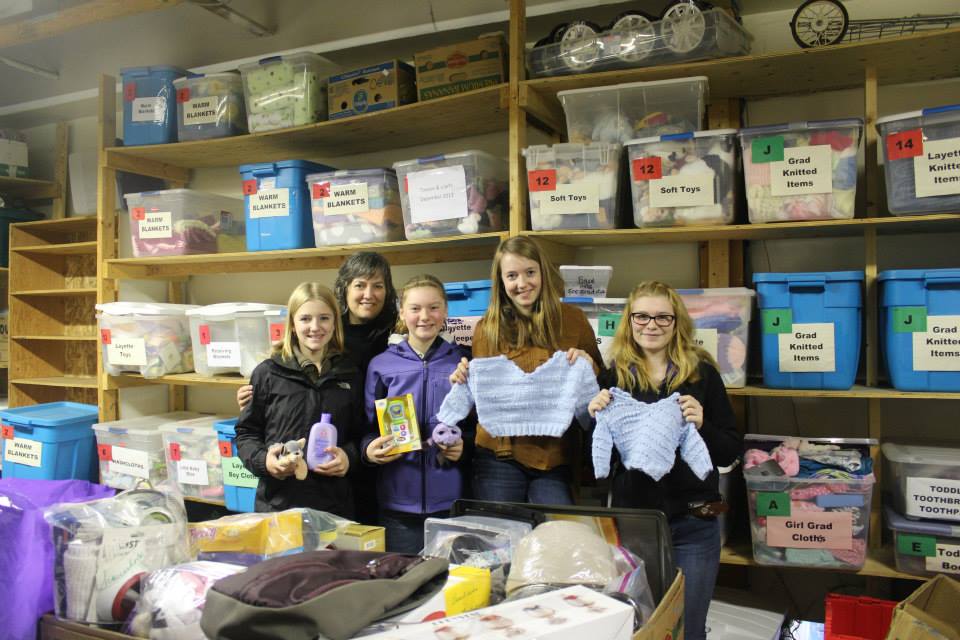
Susan Mercer (second from left) and the young volunteers working in the Tiny Bundles Room of the Surrey Food Bank.
‘More needy, more desperate’
There have been articles floating around about the need for food banks nowadays. With the reported improvement in the economy and the rise of employment rate, some people are asking if food banks are still relevant. Kuldip and Marilyn emphasize the need and relevance of food banks in each community.
“That’s totally wrong,” Kuldip answered. “The demand is growing and growing every day. The economy is not helping the middle to lower class. People are getting more and more needy and they’re getting more and more desperate. People have been laid off their jobs. So, no, the food bank is not going anywhere.”
“I was just going through some stats. Last year, we served 146,000 people. And some of those people were able to come every week or every month. That’s a pretty outstanding number,” Marilyn added.
“Oh, it’s increased so much. Each year, each month, it’s increasing. We’re serving between 13,000 to 14,000 a month. A third of those people—42% almost—are children under the age of 18 and seniors. A lot of changes have occurred in the sense that (there are) people from different ethnicity backgrounds that are coming forward so we’re trying to cater to those,” Kuldip agreed with Marilyn.
The need for a facility that provides food items for low income households is indeed apparent, especially for those who work closely with the community.
“We’d love to say that, you know, the food bank we don’t need anymore, but unfortunately the demand is getting bigger and bigger and bigger. I was here at 7 o’clock this morning. The queue was right from the yard (to) all the way around where the cars are parked and there must have been about 40, 50 people at 7 o’clock and we don’t distribute food until 9:30. That shows the desperation and the need. They think that if they go first, they’re gonna get the pick of the crop. No, we treat everybody the same,” Kuldip shared.
The Surrey Food Bank itself does not only see Canadians in their facility. Even immigrants are coming to them for aid when it comes to filling their stomachs.
“A lot of immigrants are coming in to enter the country by the government sponsorship. And what happens there is that they have to pay back the government (for) the airfare. They have one year to pay. They have no other income, they don’t have a job, they have no means. So what happens is that the food bank is here to help them,” said Kuldip.
“Another thing we like to associate ourselves is [tourists] from another area,” she added. “We wouldn’t turn them away. We would give them the one time and advise them where their food bank is so they can go there… And then give them a list of the organizations that are around here by walking distance—two, three, five minutes max—that do lunches, that do dinners, so they can go there and be fed.”
But despite the changes in statistics, Kuldip noted one thing that hasn’t changed after 30 years.
“But the thing that hasn’t changed, which is really, really a positive point—our donors haven’t changed. Donors are very generous, donors are very compassionate, donors are very thoughtful,” she pointed out. “All in all, if it (weren’t) for the volunteers, if it weren’t for the various food industries, we wouldn’t be able to do this. We don’t get core government funding.”
Why they do what they do
When asked why Kuldip loves her job and what makes it so special, she struggled to find the words to describe how much her profession means to her.
“My job is to appreciate—personally go out and appreciate our donors,” Kuldip started. “Our job is to raise awareness; our job is to educate those who are not familiar… It has to be passion to do something like this. I enjoy my job so much. I look forward to it every time. When people say, ‘you going to work today?’ I always say, ‘no, I’m going to make a difference.’ It’s not work to me, I’m going to make a difference. I’m sharing my skills, sharing my knowledge with others, so we can make them a little bit better.”
Kuldip used to work for the Liberals and New Democratic Party, which she describes as “serving the community in a different way.” She differentiates her political service with community service by how it gives her satisfaction.
“This is job satisfaction at the end of the day. You see people queuing up… And when people are going and they’re struggling with bags flowing with food, it makes you feel good that I’ve been a link. I go to the farming industry, I go to the food industry, I go to the stores, I go to individual corporate people and educate, raise awareness, do presentations, present certificates of appreciation to people. So I feel that I am a bridge between people who are able to give and people who need to be supported. So, that’s my passion: to make sure that other people got the same opportunities myself,” Kuldip shared. “. I truly get job satisfaction at the end of the day because I think, ‘okay, at least so many people today will be eating better.’ Where else do you get a job like that, where you can sort of say, ‘okay, I’ve helped today and I’ve made a difference.’”
Kuldip recalled one instance in her long career with the food bank. They helped out a bunch of young kids who were struggling with addiction. A few years later, the kids came back to express their gratitude to the SFB team.
“They came one day and they were saying, ‘we don’t know how to thank you.’ The children came back, (saying) ‘thank you, thank you, thank you. We wouldn’t have done it without you.’ I said back, ‘I should be thanking you, not you thanking me. You had a problem, I had a job, I got paid for it. So, I should be thanking you… Because of you, I have a job.’” Kuldip recalled.
She shared that she aims to make their clients feel valued and loved, which will truly make a difference.
Marilyn Hermann has been in service for a long time and she couldn’t have stayed all those years if it weren’t as rewarding as it is.
“Oh, my goodness,” Marilyn laughed after being asked the question.
“I guess when you’ve been doing this as many years as I have, you do it because you know it’s making a difference to people. And it’s been a rewarding experience to work with not just our clients, but an amazing group of other people who are just as passionate—former volunteers, staff, personnel,” she continued.
‘There’s help out there’
For those who are interested in volunteering or donating, Kuldip suggests that interested parties visit their website first. From there, SFB’s volunteer coordinator will get in touch with those who signed up online.
“She will contact you, set up a time and date, explain what’s expected or what they would be doing as a volunteer. And then it’s up to the individual whether it fits with them or it doesn’t fit with them,” Kuldip explained.
“And like I said, we have a lot of third party events, which people who are working or in school that want to volunteer but they can’t because they work in the time between 9 and 4, so in the evenings we have a lot of events, weekends we have a lot of events where we’re there with our tables and information pack, so then they could volunteer there as well. If (they’re) students and they need to do hours for graduation, we will give them a lot of reference and also we would credit them with those hours,” she continued.
When asked about her wish list for the SFB, Marilyn answered without batting an eyelash.
“A new building! A new building and then a new building,” Marilyn laughed.
“We’re operating under some pretty critical conditions, as you can see. We have to raise $1.4 million every year just to keep the operation going, just to keep the fuel in the trucks and the food on the shelves, but we desperately need a new building. Something about three times the size of what we’re (using now),” Marilyn described.
As a partner of the community, they get many well-meaning volunteers who would like to offer their services to help out the food bank’s cause.
”We’ll have people come to us who see a need and they know that they can help the people in the line, so they come to us. The school district is a great example,” Marilyn pointed out.
The school district’s kindergarten teachers recently offered to teach the parents and kids who come to the food bank from war-torn countries as refugees.
“They recently came to us… And kindergarten teachers are getting these kids with no understanding of literacy. So they wanted to come and have one of their staff introduce moms and dads to the whole concept of reading. And we don’t know where to put them! So, we need a new building,” Marilyn said.
Kuldip also shared, “But because of my skills, I’m able to provide that extra encouragement, raising people’s self-esteem, raising their confidence to say, ‘hey, don’t despair. Don’t be sad or depressed. There’s help out there.’”
For more information about how you can help the causes of Surrey Food Bank, please visit their website and Facebook page.
Interview conducted by Melissa Remulla-Briones, editor-in-chief, Philippine Canadian Inquirer. Transcribed and written by Ching Dee, correspondent, Philippine Canadian Inquirer.

